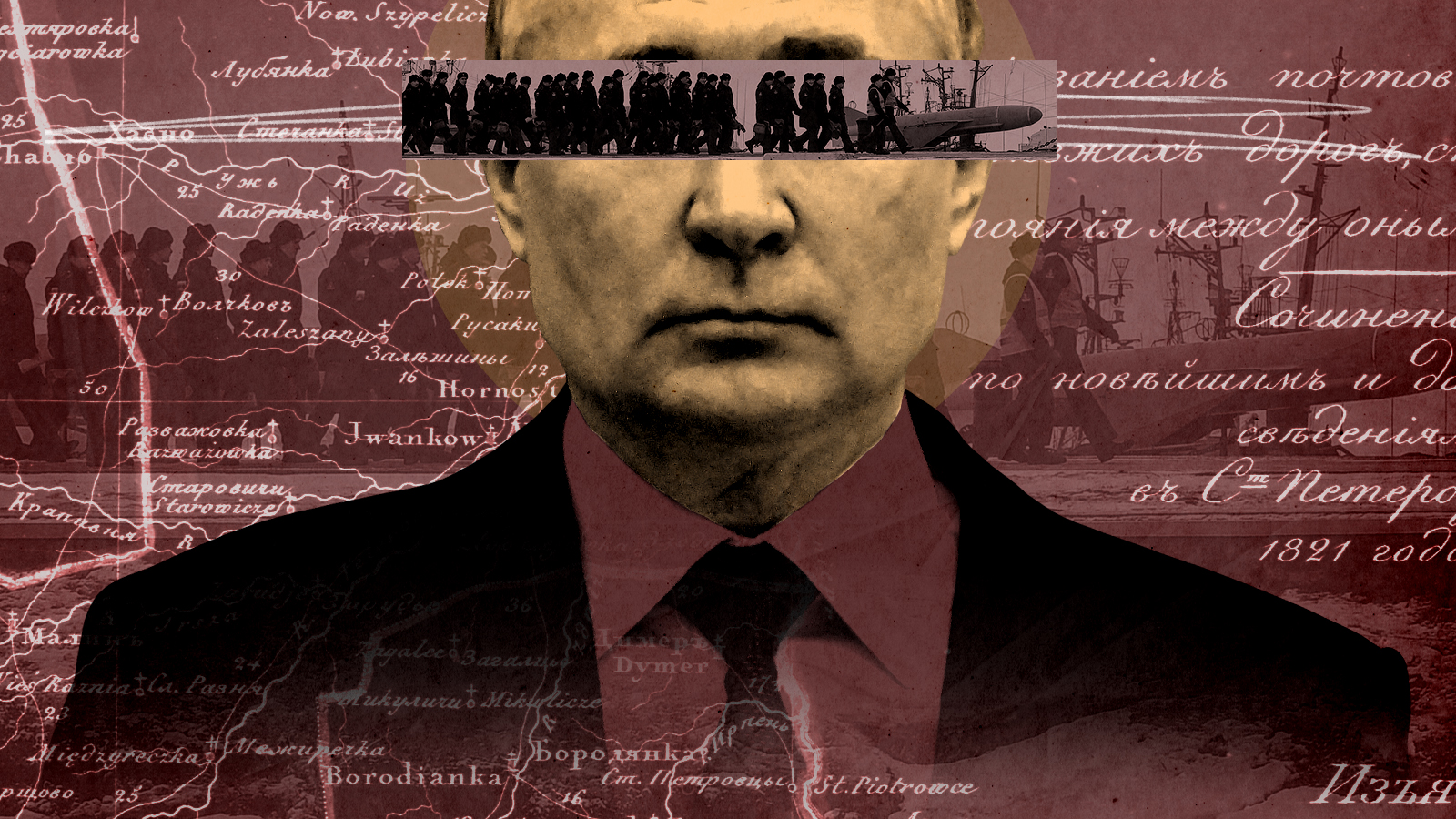Tensions between the U.S. and Russia just took their darkest turn yet


A free daily email with the biggest news stories of the day – and the best features from TheWeek.com
You are now subscribed
Your newsletter sign-up was successful
The fog of war has already descended on the border separating Russia from Ukraine.
As recently as a day or so, things seemed to be moving in a hopeful direction, with word of Russian troop withdrawals and ongoing negotiations to avoid the outbreak of conflict. But on Thursday, events took their darkest turn yet.
First came confirmation that Russia has merely been repositioning forces, not withdrawing them, and has actually added 7,000 troops in recent days. Then came reports of cross-border shelling in the eastern part of Ukraine, with each side accusing the other of initiating hostilities. This was followed by word that the Russian Federation sent a chilly written response to a document the United States delivered three weeks ago engaging with Moscow's security demands in the region. The Russian Ministry of Foreign Affairs then released a statement about the response, indicating the U.S. had "ignored" its concerns.
The Week
Escape your echo chamber. Get the facts behind the news, plus analysis from multiple perspectives.

Sign up for The Week's Free Newsletters
From our morning news briefing to a weekly Good News Newsletter, get the best of The Week delivered directly to your inbox.
From our morning news briefing to a weekly Good News Newsletter, get the best of The Week delivered directly to your inbox.
Next came news that Russia had expelled Bart Gorman, the U.S. Deputy Chief of Mission to Russia, the second-most senior diplomat at the U.S. Embassy in Moscow. No explanation was given for the move, and the Biden administration has responded by calling it "escalatory." President Joe Biden himself then added to the gloom by telling reporters Thursday morning, "my sense" is that Russia will invade Ukraine "within the next several days."
U.S. Secretary of State Antony Blinken, speaking before the United National Security Council, echoed Biden's sentiments by calling the Russia-Ukraine crisis a "moment of peril."
But the most ominous development of all may be the content of that written response from Russia, which, in addition to calling for Ukraine and Georgia to be denied entry to NATO, reportedly demands that no NATO or U.S. military assets be stationed in countries once part of the Soviet Union and that NATO "military capabilities" be removed from all countries that have joined the alliance since 1997.
One can make the argument that NATO expansion went farther than it should have after the conclusion of the Cold War, contributing in decisive ways to bring us to the brink of war today. But that's entirely different from suggesting the United States and NATO effectively unwind NATO expansion back to 1997. That is and ought to be a complete nonstarter.
A free daily email with the biggest news stories of the day – and the best features from TheWeek.com
Which means war may well now be all but inevitable.
Damon Linker is a senior correspondent at TheWeek.com. He is also a former contributing editor at The New Republic and the author of The Theocons and The Religious Test.
-
 Tourangelle-style pork with prunes recipe
Tourangelle-style pork with prunes recipeThe Week Recommends This traditional, rustic dish is a French classic
-
 The Epstein files: glimpses of a deeply disturbing world
The Epstein files: glimpses of a deeply disturbing worldIn the Spotlight Trove of released documents paint a picture of depravity and privilege in which men hold the cards, and women are powerless or peripheral
-
 Jeff Bezos: cutting the legs off The Washington Post
Jeff Bezos: cutting the legs off The Washington PostIn the Spotlight A stalwart of American journalism is a shadow of itself after swingeing cuts by its billionaire owner
-
 What is ‘Arctic Sentry’ and will it deter Russia and China?
What is ‘Arctic Sentry’ and will it deter Russia and China?Today’s Big Question Nato considers joint operation and intelligence sharing in Arctic region, in face of Trump’s threats to seize Greenland for ‘protection’
-
 What would a UK deployment to Ukraine look like?
What would a UK deployment to Ukraine look like?Today's Big Question Security agreement commits British and French forces in event of ceasefire
-
 Did Trump just end the US-Europe alliance?
Did Trump just end the US-Europe alliance?Today's Big Question New US national security policy drops ‘grenade’ on Europe and should serve as ‘the mother of all wake-up calls’
-
 Is conscription the answer to Europe’s security woes?
Is conscription the answer to Europe’s security woes?Today's Big Question How best to boost troop numbers to deal with Russian threat is ‘prompting fierce and soul-searching debates’
-
 Trump peace deal: an offer Zelenskyy can’t refuse?
Trump peace deal: an offer Zelenskyy can’t refuse?Today’s Big Question ‘Unpalatable’ US plan may strengthen embattled Ukrainian president at home
-
 Vladimir Putin’s ‘nuclear tsunami’ missile
Vladimir Putin’s ‘nuclear tsunami’ missileThe Explainer Russian president has boasted that there is no way to intercept the new weapon
-
 The Baltic ‘bog belt’ plan to protect Europe from Russia
The Baltic ‘bog belt’ plan to protect Europe from RussiaUnder the Radar Reviving lost wetland on Nato’s eastern flank would fuse ‘two European priorities that increasingly compete for attention and funding: defence and climate’
-
 How should Nato respond to Putin’s incursions?
How should Nato respond to Putin’s incursions?Today’s big question Russia has breached Nato airspace regularly this month, and nations are primed to respond
